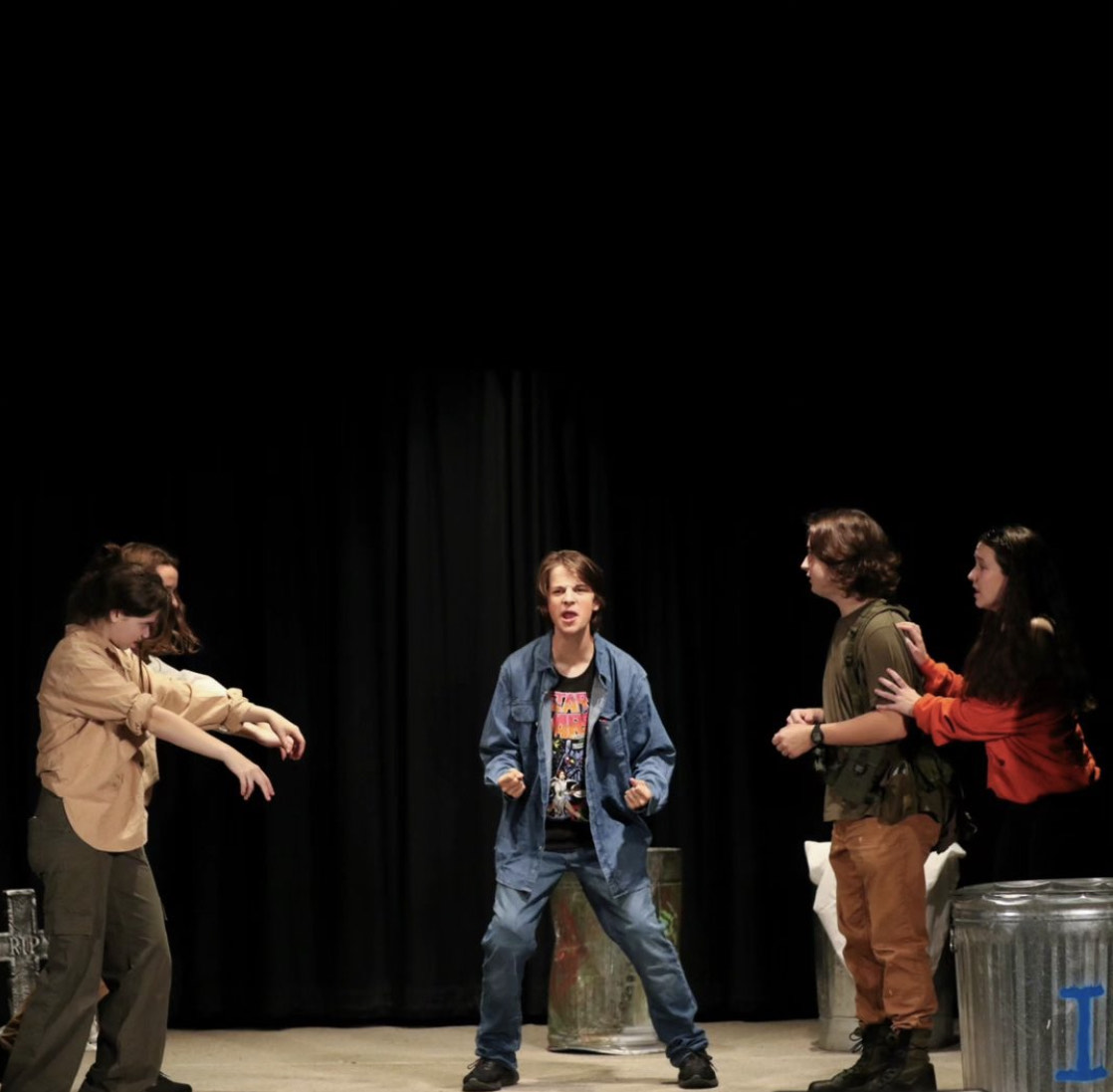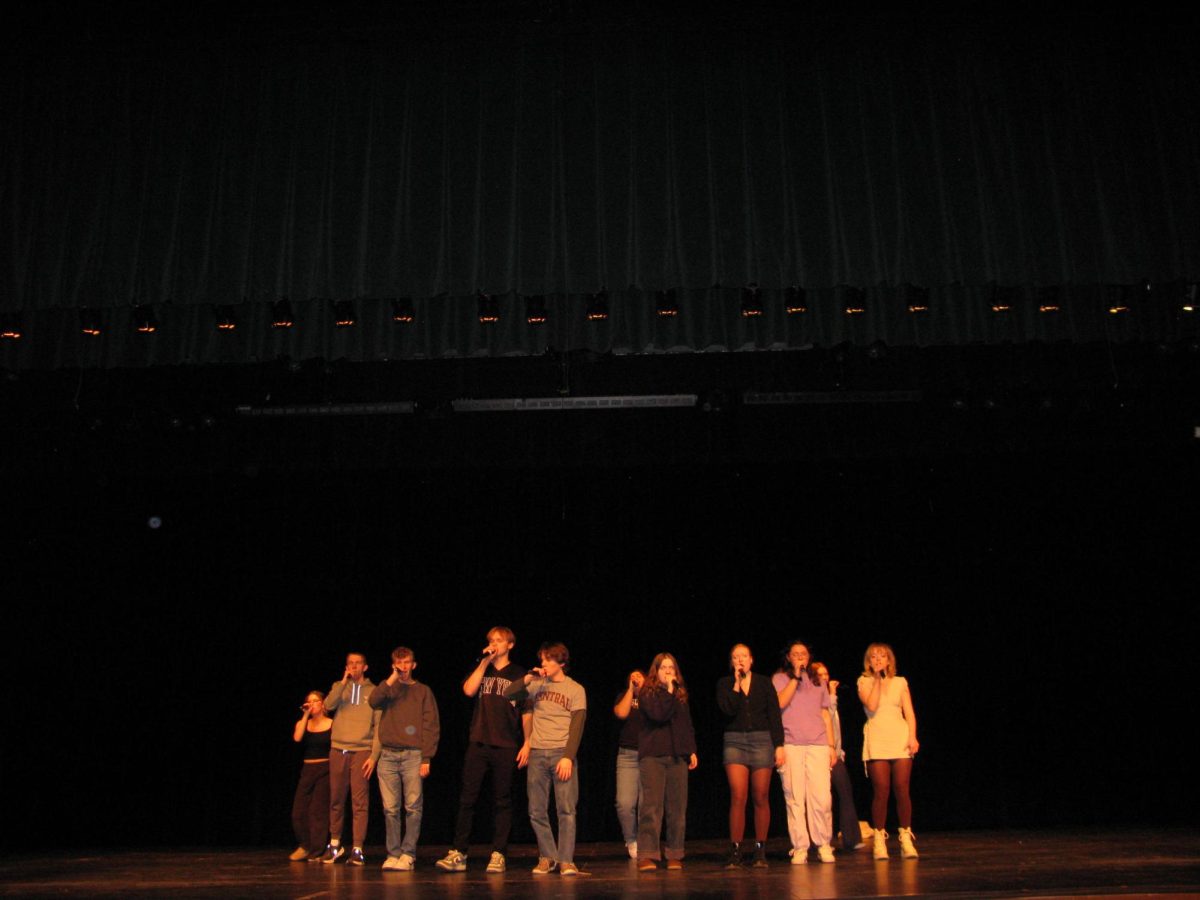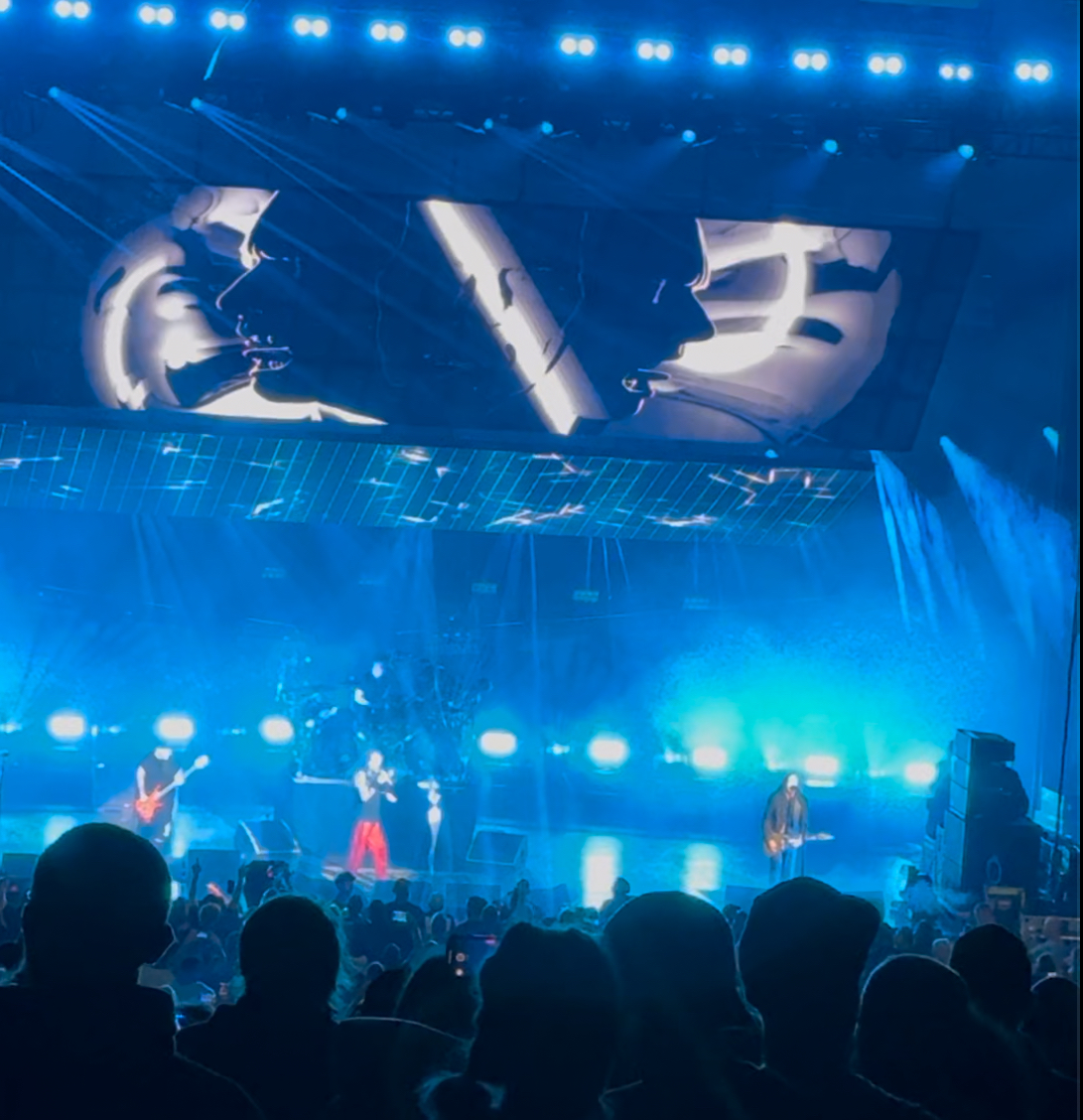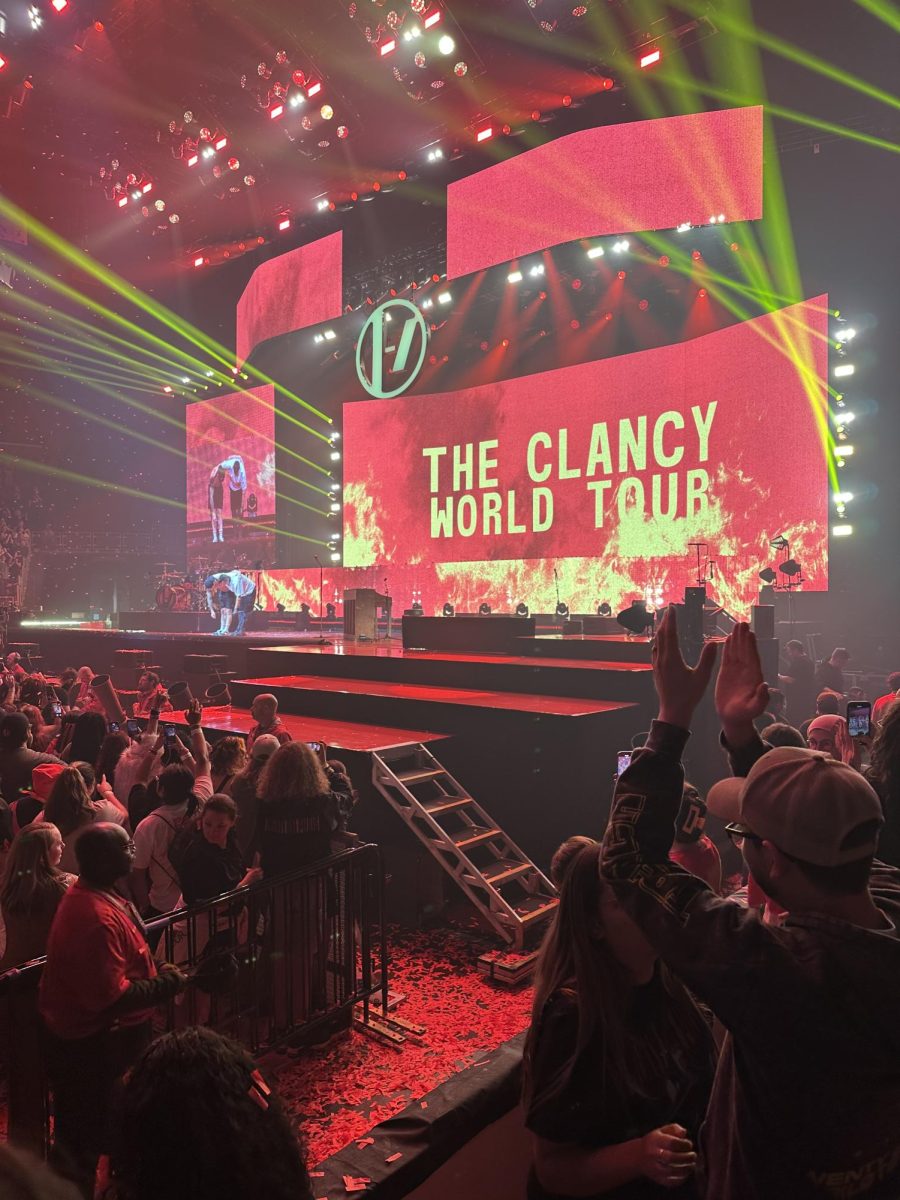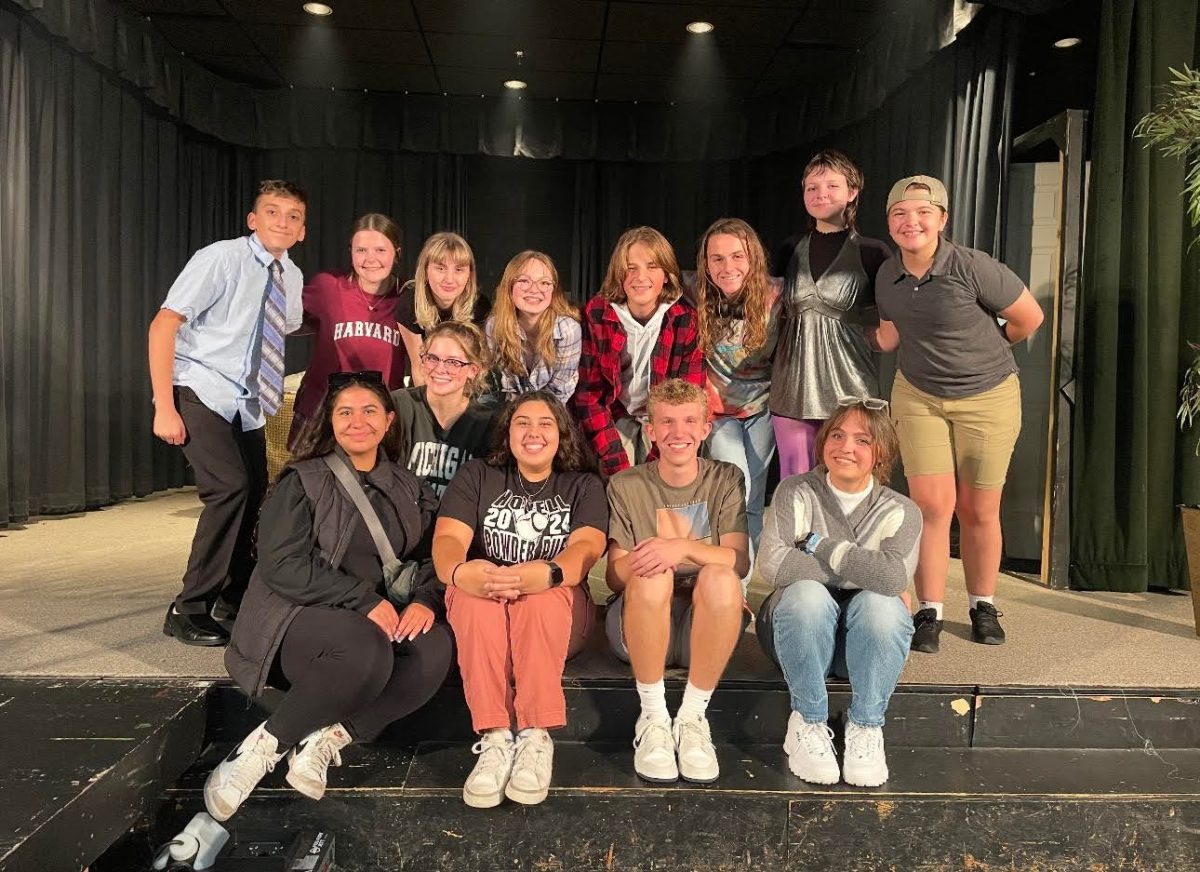When most people go to see a play, they solely see the end result; perfected and well rehearsed. What most don’t see are directors carefully piecing together their vision through music, costumes, or what actions are made in scenes. They don’t see the time actors put in, or the work the stage managers do during rehearsals and the performance to make sure all tech related aspects run smoothly. At Howell High School, the black boxes fill these roles entirely with students.
On October 3rd and 4th, Howell High School students performed the 2023 black boxes, this year there are two. “10 Ways To Survive a Zombie Apocalypse ”, directed by Ben Schiedler and stage managed by Brooklyn Diadiun follows the last group of people on Earth detailing various ways to evade zombies in the case of an outbreak, led by a duo of comical narrators. “Odds Are”, directed by Emily Studebaker and stage managed by Lily Nicholas, showcases a couple post-break up adventuring out on a series of hapless dates. Once they realize that they would be happier together, the pair decides to reunite.
“Really it’s just seeing like what I have created in general you know, I’ve created these connections, I created these characters along with like this; all these scenes. It’s just the basic creation of it all, I find very interesting.” senior Ben Schiedler says.
Black box season starts with auditions where the students each performed a short monologue for all the fall production directors. The directors selected those they saw fit for certain roles and called them back. They then read scenes from the play chosen by the director with other actors called back to get a better feel for chemistry and character.
“Mainstage has a much bigger cast so it’s more difficult to get closer with the cast, since it’s so big, whereas black boxes only have about like eight people, including the director and when you are in the black box you typically get really close with the cast,” junior Annalise Kennedy who played “Christy” in “10 Ways to Survive a Zombie Apocalypse” says.
Given the timeframe of a month, the cast had to quickly become well acquainted with each other in order to pull off the production.
“As time went on I realized that the cast became well more like a cast, like they just collaborated with each other better, they talk to each other, figured out, like they came to me, they started coming to me with ideas that they created together and that’s what I love to see as a director because as a director I don’t like it to be all about me. I like the characters to be able to create themselves in a creative way that they can express on stage,” Schiedler says.
With the directors being students, a lot of them go from acting to directing with little experience. Directing challenges them to take on a new perspective in theater.
“It’s very different. It’s a lot more management than it is straight work. You know, I know my actors work as hard as they can or at least I hope so but a lot of it is just me trying to push them to their full potential and if they let me do that then that’s great if they don’t then there’s nothing much else I can do about that,” Schielder says.
During the black box the cast not only bond with each other, but also with their director.
“We’re all friends with the director. Ben makes it easy for us to respect him, but also be his friend,” Kennedy says.
Typically led by adults in the drama department, actors in the black boxes must adjust to students being their leaders.
“Well I mean, I already experienced that since Emily (Studebaker) is the captain of classicality and since all throughout high school she’s been a role model for me, so it wasn’t too big of a difference,” junior Kaiyah Luethy who played “Molly” in “Odds Are” says.
Transitioning from a student actor to a director in charge of students is a task that all directors of black boxes must face.
“A challenge I have faced is, I don’t like to be mean per se, but when people in the cast get unfocused or something or there’s just any complications I have learned I’ve had to kinda put my foot down a little bit more and so it creates kind of I feel like a disconnection with the director and the actor because sometimes the actors might take it personally,” Schiedler says.
While the directors’ challenges are mostly rehearsal based, the stage managers’ challenges extend to the show. Stage managers during the black boxes show up to every rehearsal and the shows to help work lights, sound, and with props.
“Probably just the stress of it all, sometimes it’s just like show nights because your like oh my god I really hope nothing goes wrong because sometimes sound won’t work or like something will happen the show or something,” senior Lily Nicholas, stage manager of “Odds Are,” says.
The black boxes sold out both shows making it a successful run.




